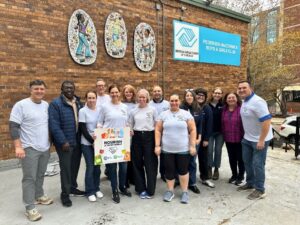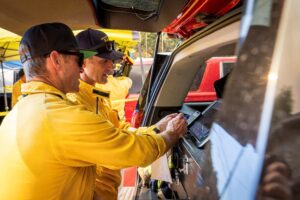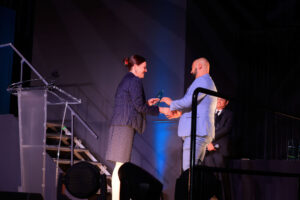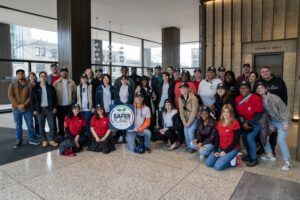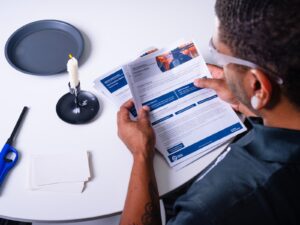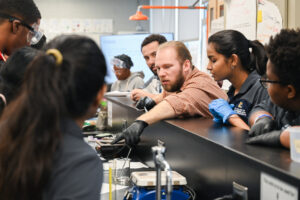Giving Back: College Student Serves as Peer Mentor to High School Student-Interns
Understanding and refining learning outcomes through evaluation and retrospective thinking shapes how the Institute for Research Experiences & Education develops effective programming and processes.
In spring 2024, IREE conducted an evaluative study to understand what individuals need to know to become effective peer mentors, as well as what they need to know about mentorship specific to ULRI to become effective peer mentors in the organization.
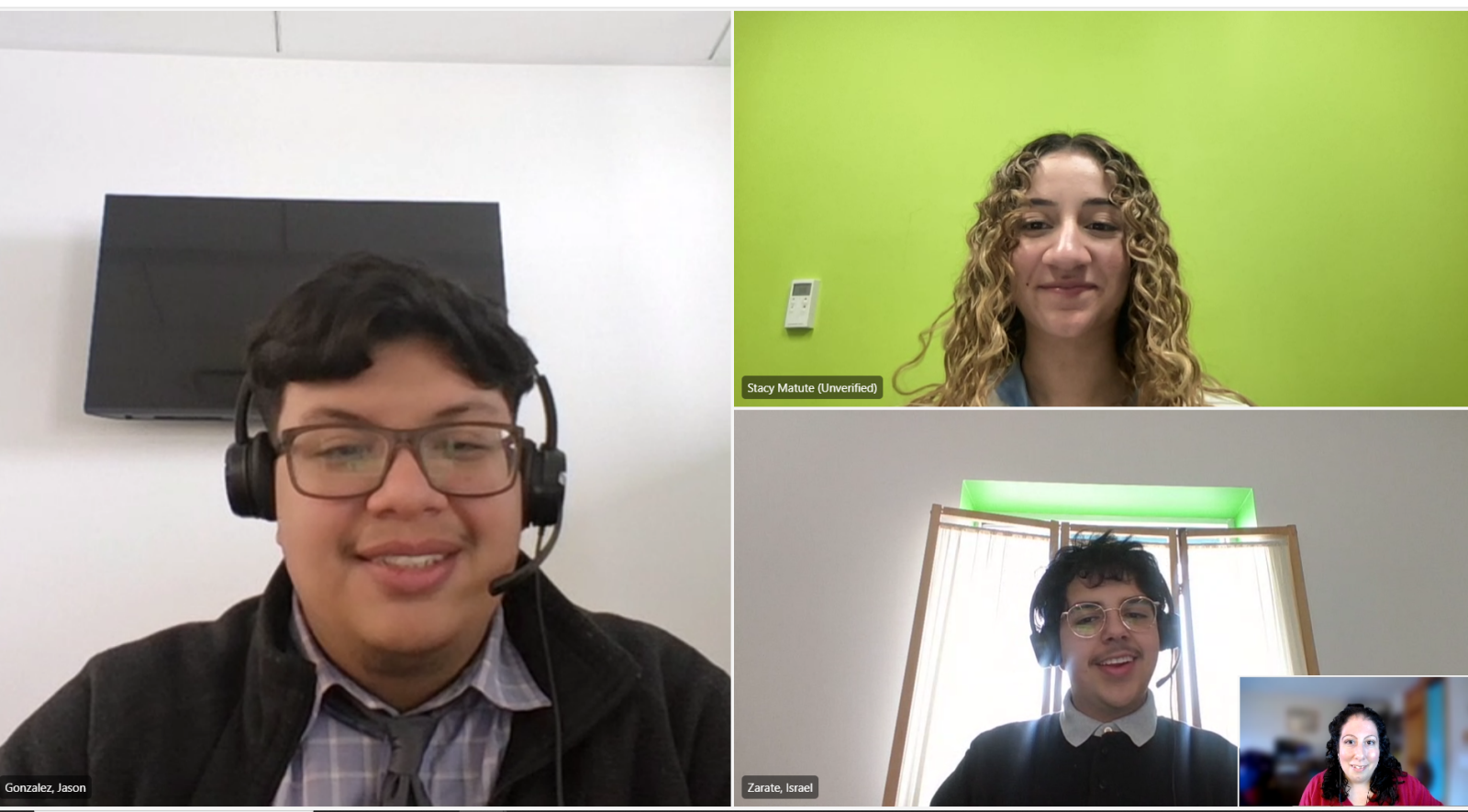
The institute’s first peer mentor, Stacy Matute, was an ideal case study participant evaluator to work with high school student-interns in the Cristo Rey Work-Study Program. A former Cristo Rey student-intern herself, Matute dove into the experience with a passion for the program and a drive to help others like herself.
“Growing up as a first-generation high school graduate, I was fortunate enough to have been in a program that offered me academic support and a mentor who I could talk with about anything,” Matute said. “My mentor during my internship with UL Research Institutes (ULRI) was someone who I related to and gave me a lot of advice. I understood she was there to support me in any way possible and wanted me to succeed.”
Matute, now a junior at the University of Rochester, joined the IREE team as a peer mentor to guide student-interns just like her through their internships at ULRI. Based on Matute’s experience, which included mentorship training and learning to navigate new relationships with student mentees, the IREE research experiences team evaluated how to strengthen the resources available to future mentors.
“My goal as a peer mentor was not only to provide guidance and support to the mentees, but also help them with both academic and personal growth,” she said. “I had to develop a trustworthy and supportive relationship with the students. Through the resources and training I was provided, I was able to both get to know the students and focus on their goals.”
As noted in the program evaluation, the overarching purpose of mentorship at ULRI is to “provide workforce support and connection across institutes to retain, diversify, and strengthen ULRI’s workforce.”
Key findings from the evaluation include:
- The development of this mentor training program at ULRI is valuable in guiding mentors on how to establish a robust mentorship relationship, how to build trust and rapport, and how to support growth, among many other positive qualities and competencies.
- Culturally responsive mentorship training is critical to equitable support systems for young people, and necessary for peer mentorship.
- The skills involved in peer mentorship overlap substantially with the skills needed for effective professional mentorship — helping shape future paths for mentorship training at ULRI.
PUBLISHED
Tags

